Starbucks vs Local Cafe Doesn’t Always End How You Might Think
It's the Coffee News Roundup: Week Ending December 12th
The founder of the Glasgow Coffee Festival talks about the interrupted 2020 festival and how the team have switched focus.

In any other year, in any other timeline, the 2020 Glasgow Coffee Festival would have already taken place. It was due to be held back in May within the grandeur of The Briggait, the soaring 19th century fish market that has been the festival’s home since its inception in 2014. Of course, the May date was never going to happen, so the festival was postponed until October. As it turns out, even that was optimistic.
Instead of cancelling completely, or going the virtual route that so many other festivals have attempted, the Glasgow Coffee Festival’s organizer, Lisa Lawson, founder of renowned Scottish coffee roaster Dear Green, had another idea. They could take the festival city-wide, over ten days, encouraging attendees to visit the multitude of independent cafes and other coffee-adjacent businesses that make up Glasgow’s thriving (at least pre-2020) specialty coffee scene.
“We’d already sold 500 tickets for the festival,” Lawson tells me on the phone from Dear Green’s headquarters in Glasgow. “Could we find a way to still offer an experience? People want to get out and about!”
The new concept, a sort-of city-wide celebration of the local coffee scene, will take place over ten days October 16-25. Tickets, £5 each, will give the attendee discounts at 50 independent coffee and coffee-adjacent businesses across the city. If you’d like some suggestions on where to visit, I wrote a coffee tour for Sprudge a few years ago that is hopefully still fairly relevant.
I spoke with Lawson about the festival, what those attending can expect, and how the coffee industry in Scotland has been affected by the (still not over, remember) coronavirus pandemic.
This interview has been condensed and lightly edited for clarity.
Can you give me a little bit of background about the festival? How long have you been going for?
We started in 2014. I'd been roasting coffee in Glasgow for a couple years, but there wasn't really a coffee culture. I kept going to other places—I went to the London Coffee Festival, the World of Coffee events, and I just thought, it'd be nice to have something like this in Glasgow.
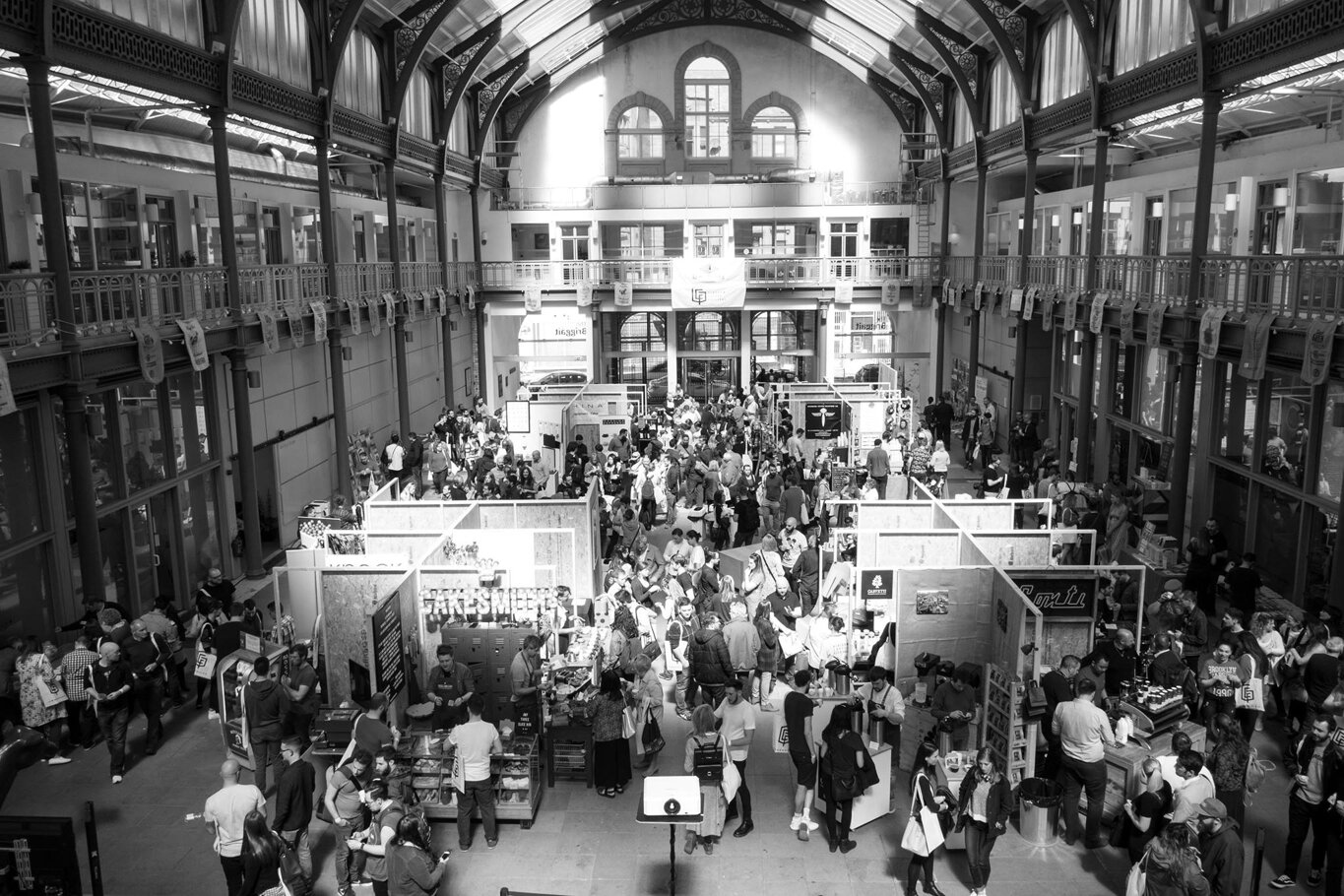
I’d been in coffee already for a long time at that point, I’d lived and worked in Australia, and there was this whole subculture that Glasgow didn't have yet. So the festival was a way of bringing people together, and showcasing it to consumers as well.
And everyone liked it—the first year we sold a couple of hundred tickets, and then 900 people showed up at the door. And we thought, well, this works! Then we got the SCA UK to do competitions every year, moved it to two days, and then started having fringe events and afterparties. It was growing arms and legs in the best possible way.
And then we had 2020.
Why did you decide to adapt the festival, rather than cancelling as so many others have done?
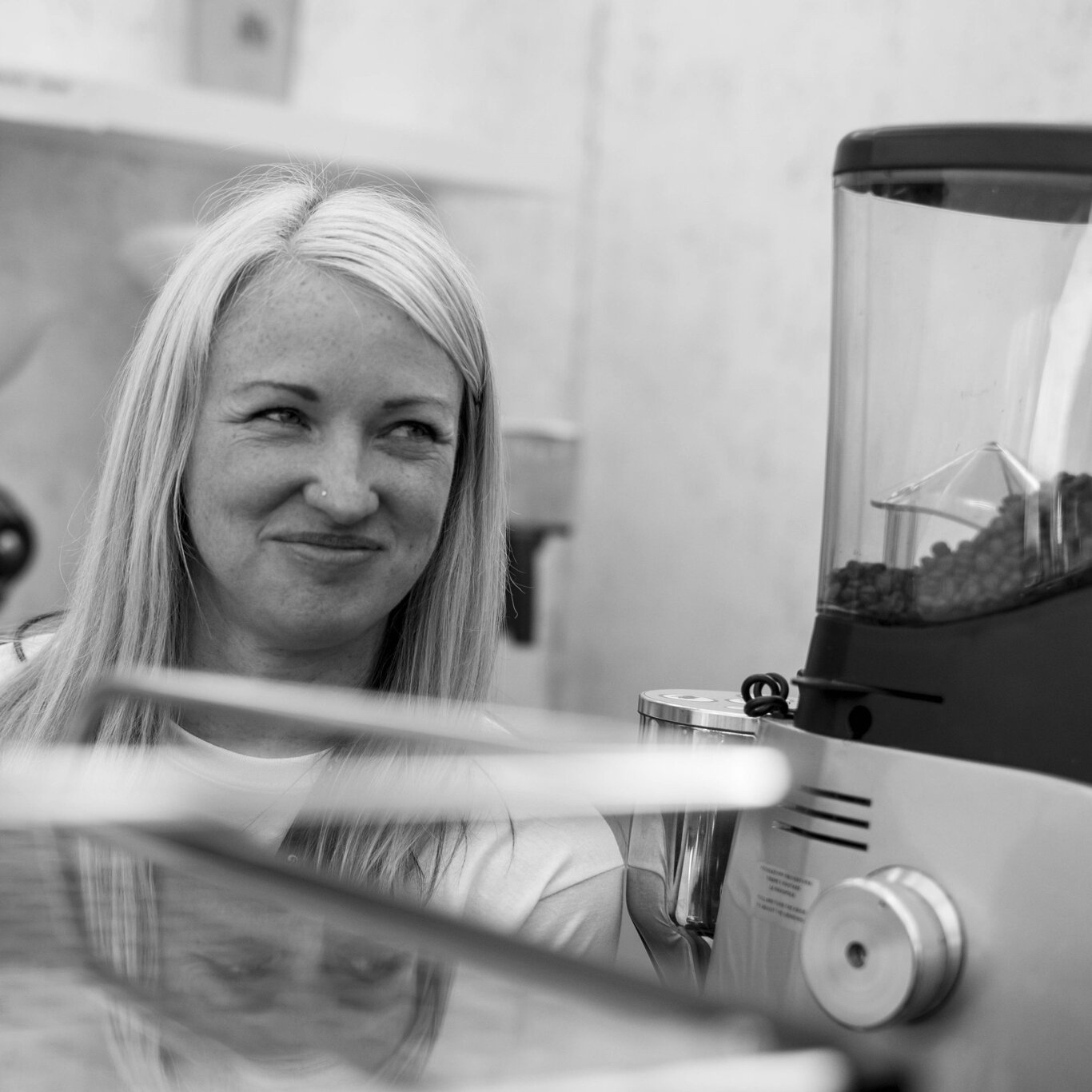
We rescheduled it for October, and quite quickly realized that we can’t host it then either. So we’ve got to this stage now where we have a new format, which in actual fact could be a really good one to move forwards with in general. And can be a template for others as more like a coffee tour.
We’re focusing on supporting the local economy, local businesses; collaboration over competition; and bringing cafes together to promote what we do, almost like one big chain.
We’re thinking about, if you buy from a local cafe who buys from a local roastery, maybe your neighbor or your cousin or somebody you know works in that roastery, or someone who roasts there will go spend money in your family’s business.
So the whole concept is to support local, and to support people who are skilled and passionate in local coffee.
And you discounted the virtual event concept?
I guess doing something virtual, for me, it was all going to be on my shoulders to do it. This way, it's more of a collaboration and about people physically spending money in small businesses that really need that support right now—that seemed like a better option to me than more stuff online.
And just cancelling everything altogether, the profile of the event is sort of lost, people forget about it. We spent years building it up and years of people really loving the festival, so we wanted to still offer an experience. And maybe people who live in the West End don’t really know the South Side of Glasgow too well, or in the city center they don’t realize there are some great independents there.
You’re the first to try this kind of festival, correct?
Yeah, I think so. I haven't seen anyone else do this. I guess it’s like when we did the first single-use-cup-free coffee festival [in 2018]. Everyone was like, Whoa that’s not going to work, and we were like, Why not just try? And now everyone’s doing it. You’ve just got to try things or else you don’t know, do you?
Can you give me an example of what someone can expect, attending the festival this year?
They’ll get their ticket, their list of 50 places that are part of the festival. All 50 places have some sort of discount on offer—it might be two for one coffees for the 10 days, it might be 20% off coffee, or a free cake with your coffee or free coffee with your cake.
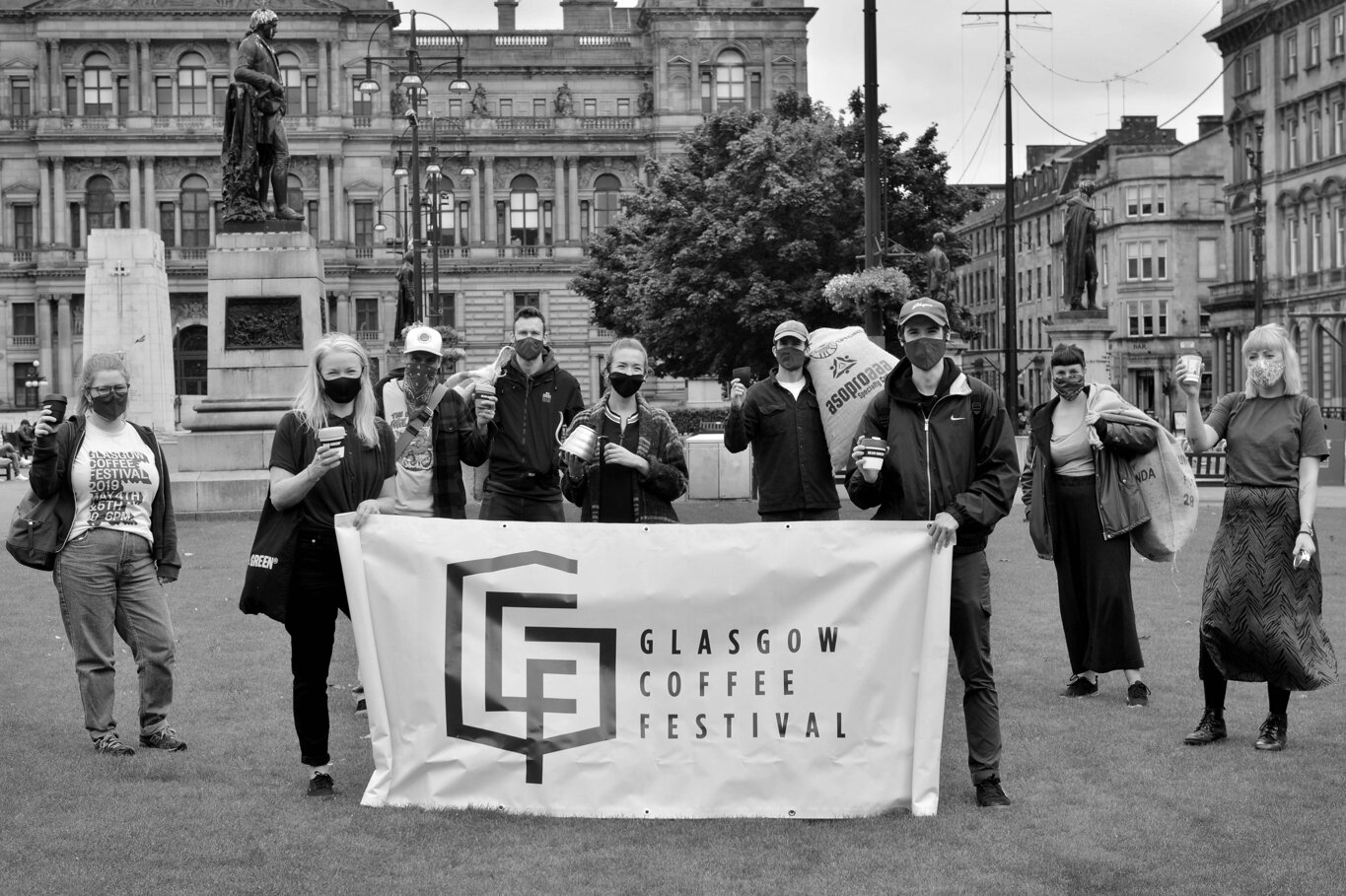
It might be exclusive products—I know [Dear Green have] got some really tasty coffees that we're going to profile and launch for the festival.
We’re talking about doing like a half marathon where you run around a bunch of coffee shops in one day. We’ve done it already—we did it in the first lockdown—we did thirteen miles and stopped in various places. It wasn’t the easiest thing to do, obviously.
People are just getting excited and coming up with things they can do that can add interesting layers to [the festival].
This is sort of tangential to the coffee festival talk, but I’m interested to know, from your perspective, what this year has been like for the specialty coffee industry in Scotland?
For us, as soon as [the lockdown started] our customers were literally cancelling their orders. That was the end of March, so we just channeled all our energy into online sales. That’s been the change for everyone, I think—every roastery that had an online presence was able to increase that volume as they were losing their wholesale volume.
In residential areas, where they’re already more takeaway-led, their volumes have maintained quite well. People are working at home, so maybe they need a break in their day and they’ll go out and get a coffee. They’re the people that would possibly have been working in the city center, and that’s why the city center guys are losing more.
A lot of places in the city center didn’t open up at all [after the first lockdown], which is quite sad. Aberdeen had the second lockdown and places closed there, because they were like, We can’t go through this again. They had just opened up and put new systems in place and then they had to lock down again.
Our overheads are quite high, so I just had to keep going. I came in with one other staff member to roast coffee and pack the bags and get them in envelopes and get them to the postal depot every day.
The job retention scheme helped a lot of businesses, but that ends after this month so I think this is the turning point—there’s a lot of uncertainty. We’re just kind of riding a wave, to be honest.
The Glasgow Coffee Festival runs October 16-25 across the city. Tickets are £5 and all the info can be found on the festival’s website.
You Might Also Like
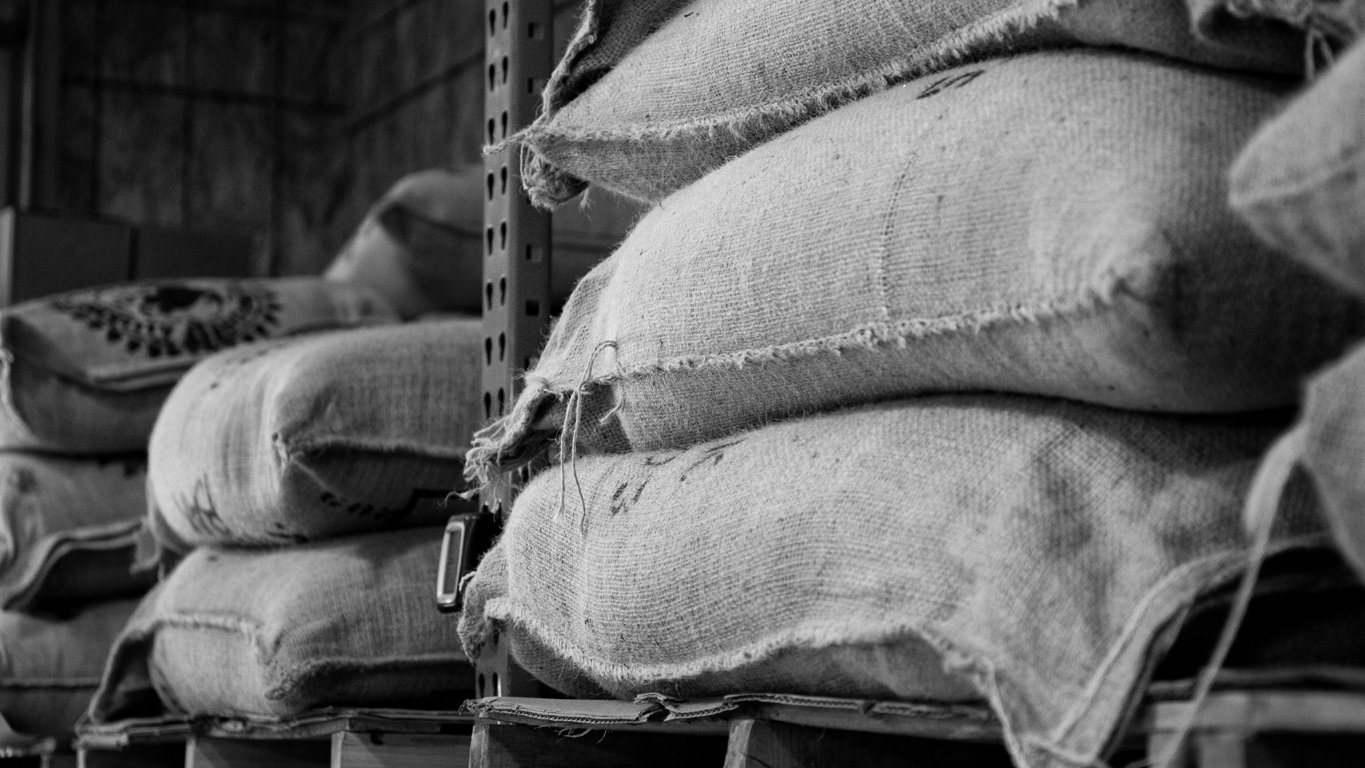
Nov 24, 2023 Connecting the Dots: Inside the 2023 Coffee Barometer Nov 24, 2023 Nov 24, 2023
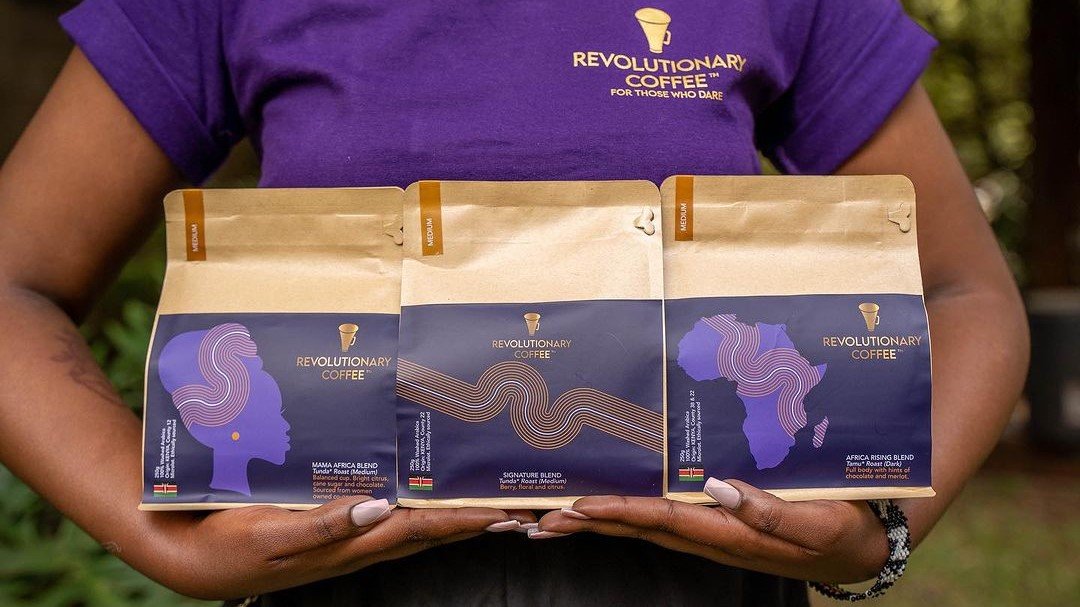
Oct 21, 2023 'Specialty Coffee Should be Enjoyed by Those Who Grow It': The Farmer's Daughter Joining Kenya's Coffee-drinking Revolution Oct 21, 2023 Oct 21, 2023
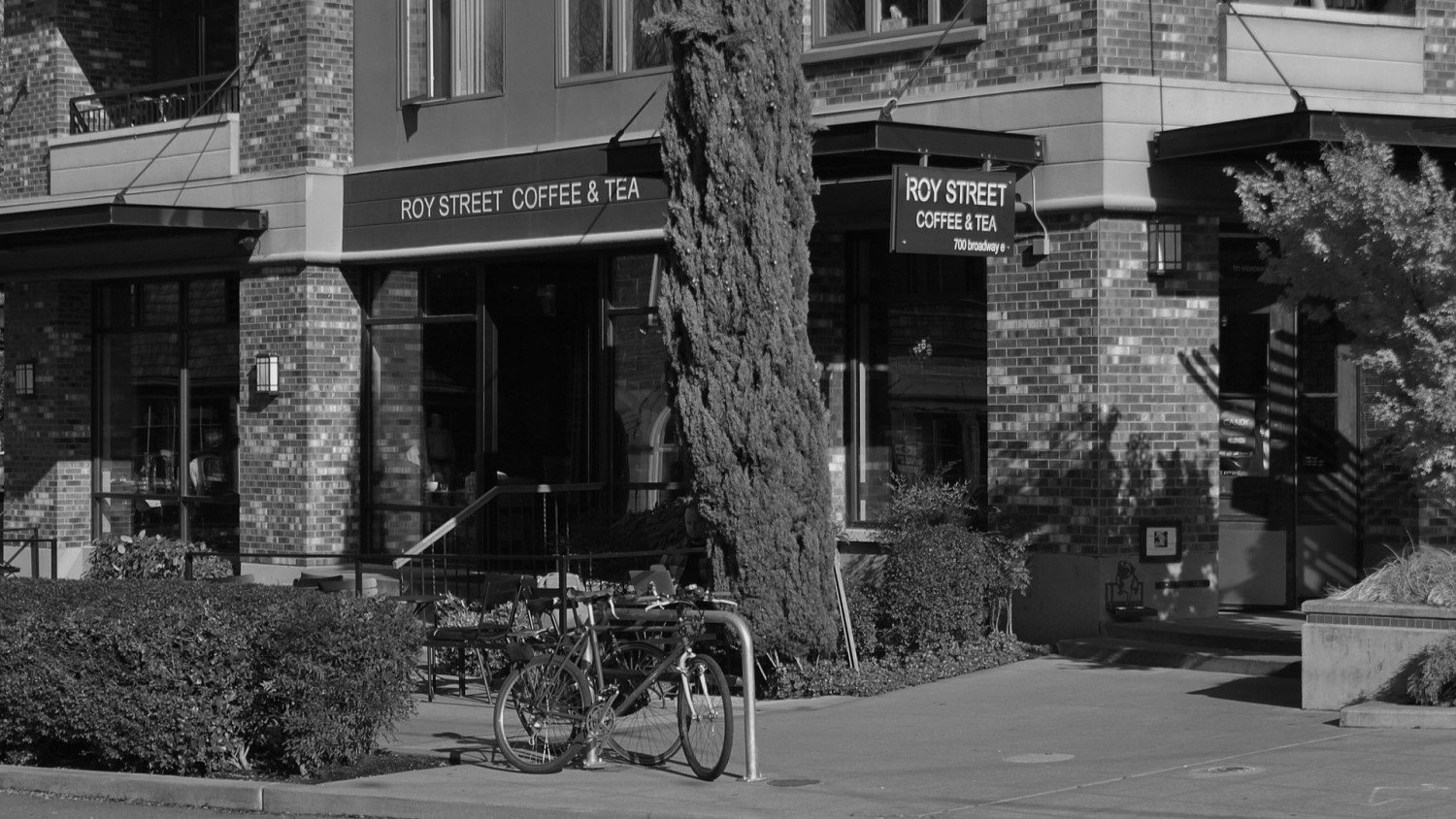
Oct 6, 2023 Stealth Starbucks: A Premonition of Modern Specialty Coffee Oct 6, 2023 Oct 6, 2023
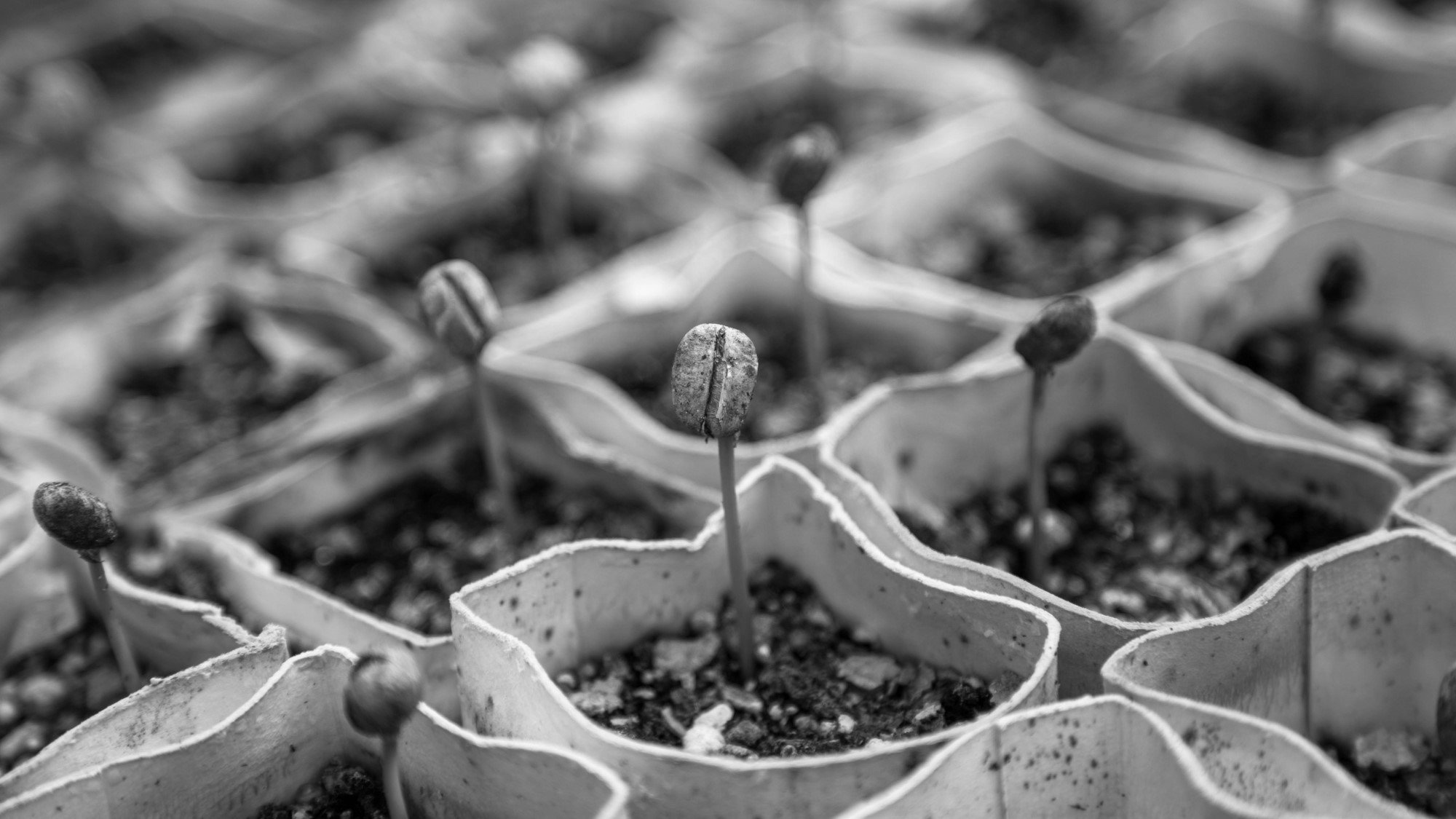
Sep 22, 2023 Can the Coffee Change Fund Save Coffee? Sep 22, 2023 Sep 22, 2023
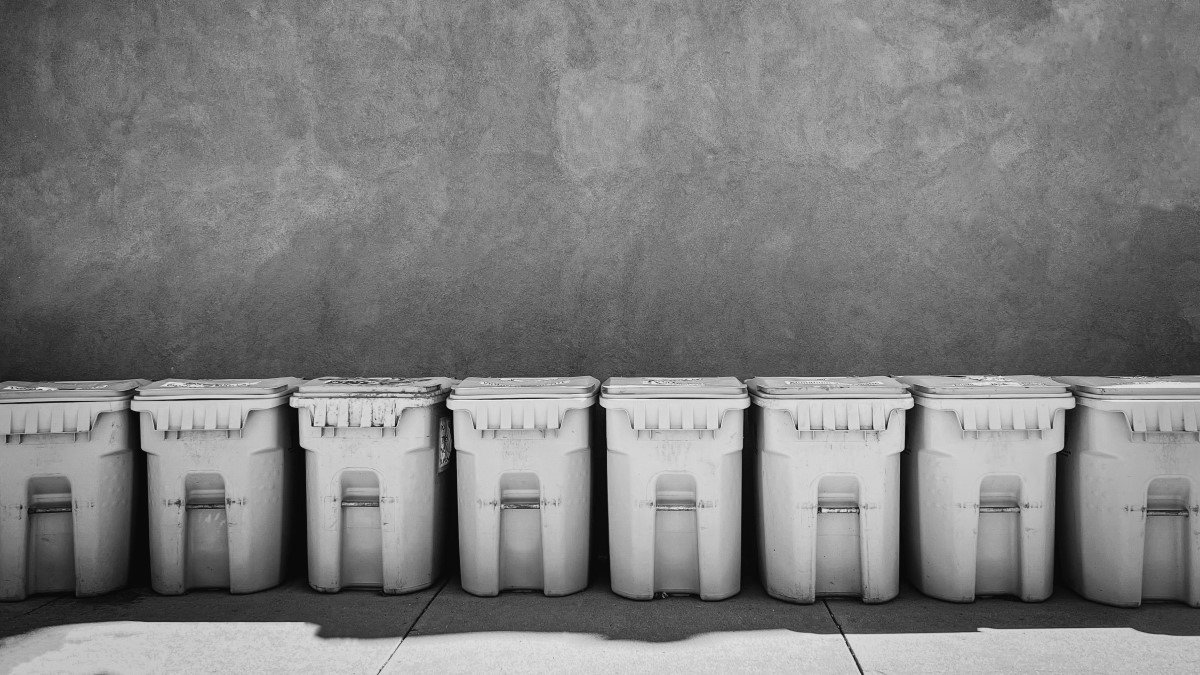
Sep 8, 2023 Upcycled Coffeewashing Sep 8, 2023 Sep 8, 2023
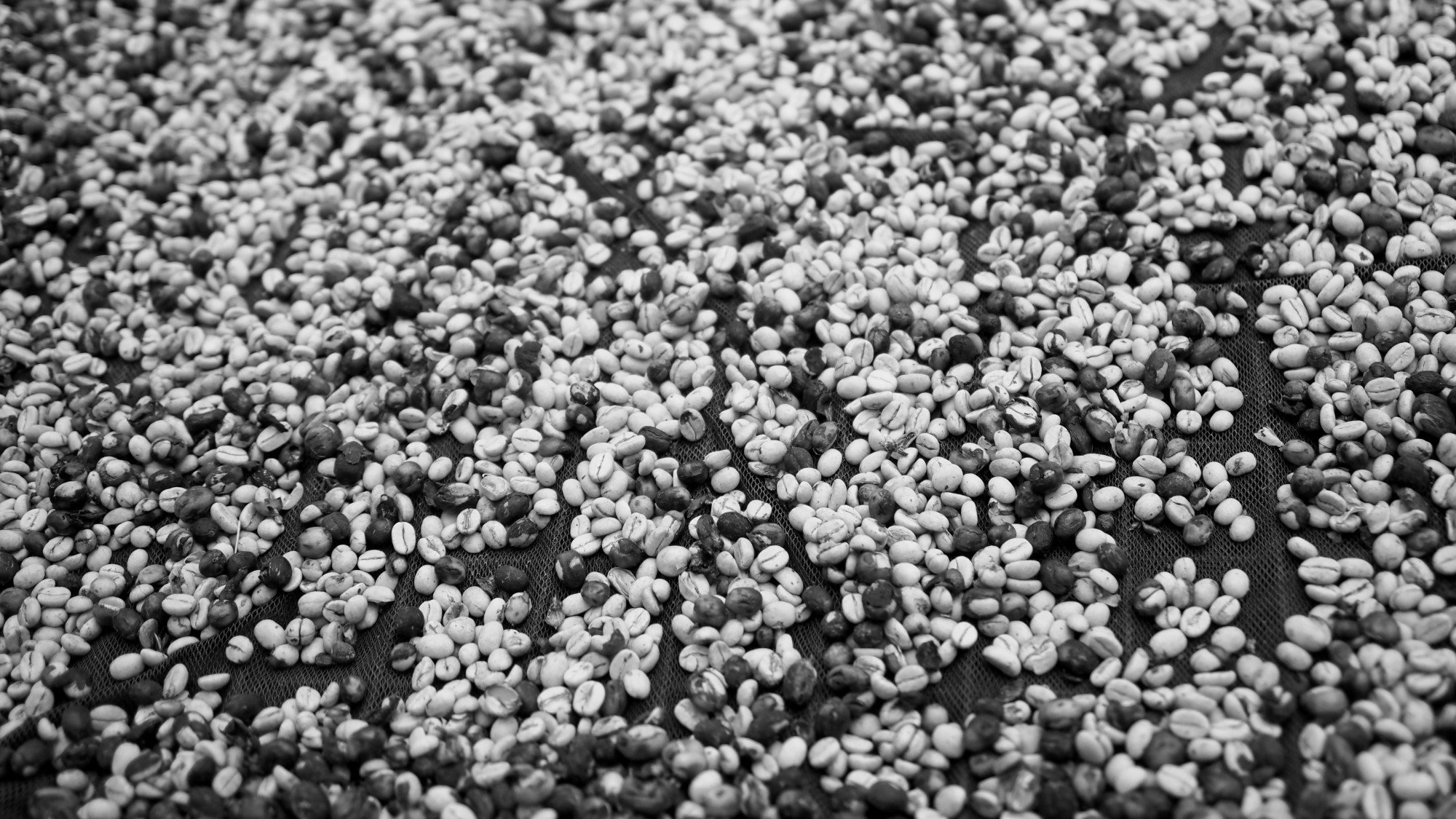
Aug 25, 2023 From A Concerned Farmer Aug 25, 2023 Aug 25, 2023

Aug 11, 2023 Philly is a (Coffee) Union Town Aug 11, 2023 Aug 11, 2023
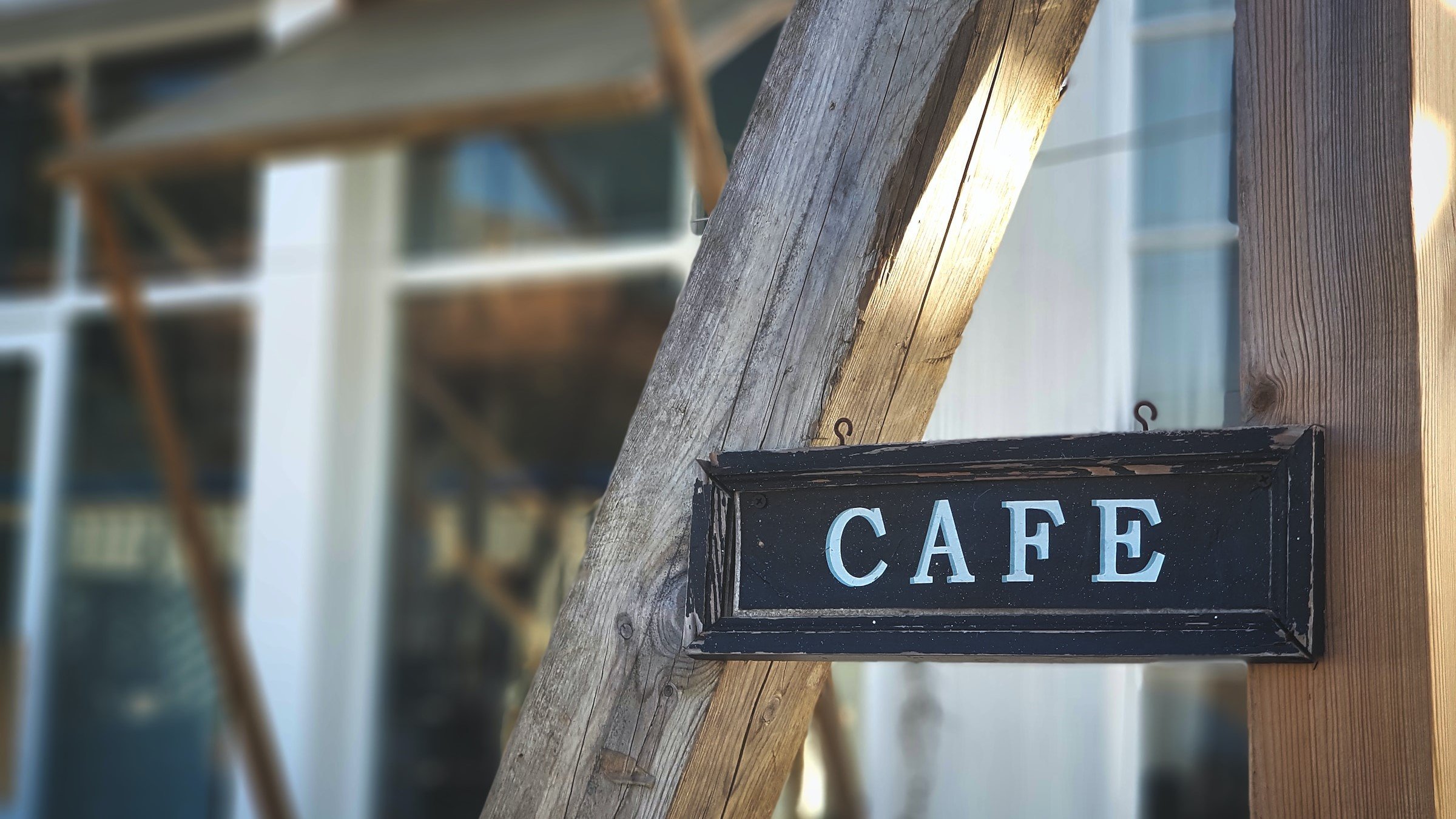
Jul 28, 2023 South Korea's Coffee Wars Jul 28, 2023 Jul 28, 2023
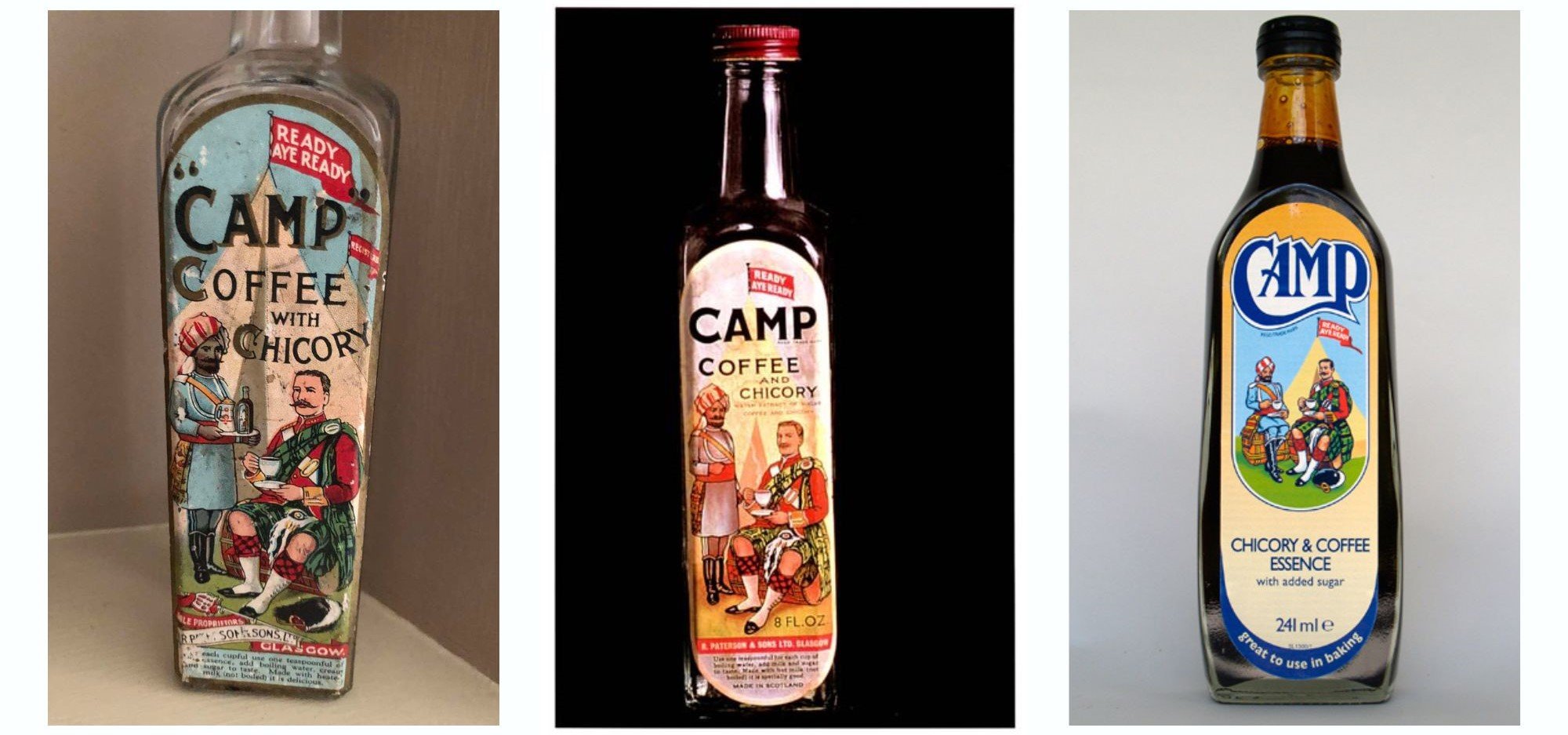
Jul 14, 2023 Camp Coffee, Colonialism, and the Evolution of a Brand Jul 14, 2023 Jul 14, 2023
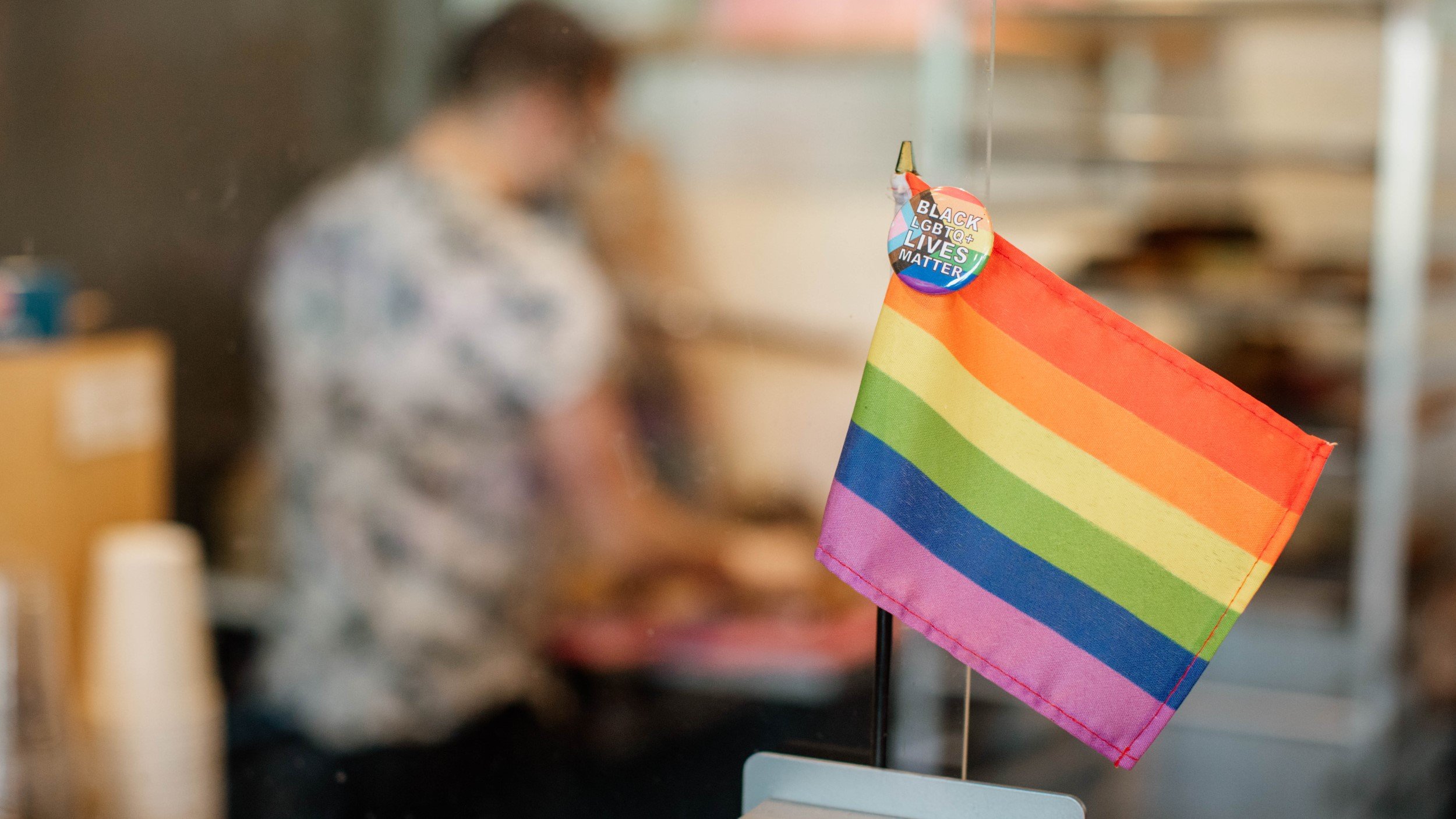
Jun 30, 2023 Defiance and Gay Frog Donuts: How Strange Matter Coffee is Navigating the Anti-LGBTQ+ Backlash Jun 30, 2023 Jun 30, 2023
A newsletter about coffee—its culture, politics, and how it connects to the wider world.